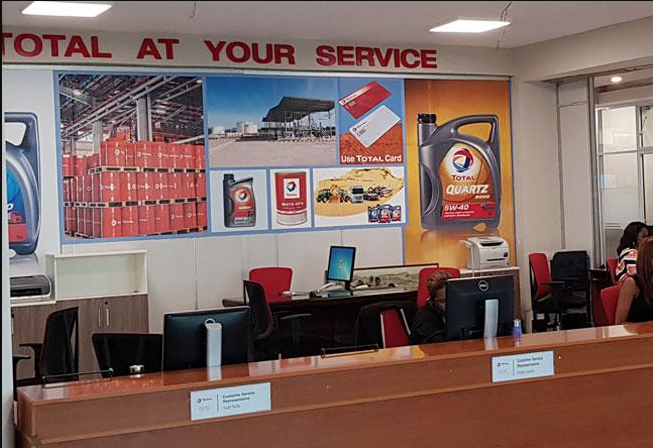
Commentaries | Jan 11,2020
October and November are hectic months for those employed by the civil service working in revenue bureaus throughout the country. It is tax season, with the deadline set on November 9th. For tax officials and taxpayers alike, it is a period to be dreaded. The seemingly unending queues in what are often cramped and stuffy rooms are testing the patience of many.
One patient taxpayer is Negash Nasir, who owns an import-export business involving mainly coffee and sesame. Since its incorporation five years ago, his company has paid taxes at the East Addis Abeba branch office of the Ministry of Revenues, on Equatorial Guinea St., in the Lem Hotel neighbourhood. In previous years, the scenes during the last days before the deadline were "disastrous", Negash recalled. He would spend several hours, often stretched out over days, among the large crowd lining up to pay their dues to the state.
This year, his experience was decidedly different. There were only a few people queued up at the tax office. Negash was not one of them.
The Ministry had introduced an online platform beginning last year. Taxpayers can declare revenues and settle their taxes remotely and at their convenience. Yet, not many took advantage of the virtual platform, and a few ended up processing their taxes online. This year, however, was a success.
Negash was one of the thousands of taxpayers who opted to go digital. He declared his business' financial statements online, paid his tax through the Commercial Bank of Ethiopia (CBE), and received his receipts in an email attachment. He was one of the over 7,100 businesses registered in this branch that used the platform this time around. Only 186 taxpayers chose to complete the process in person.
"I'm only here for clearance," Negash told a tax officer during his brief visit to the branch office last week.
The simplicity and convenience is a glimpse into the potential of digitalisation in improving lives. But there are still issues to be worked out.
There exists a tendency among taxpayers to settle taxes at the last minute. Negash is guilty of this as well. He filed his taxes and paid only a few days before the deadline. He had been travelling, keeping his auditor from finalising the books earlier.
The Addis Abeba City tax bureau has collected 23 billion Br over the first third of the fiscal year, with half the amount paid in October alone.
This is an excuse that Abraham Zewdi, head of an accounting firm that served over 50 taxpayers this year, hears often. Business owners and managers are often unavailable to process documents with the accounting professionals they hire.
“It's customary for businesses to run late in finalising documents,” said Abraham.
Many produce a few of the documents accountants require when tax season begins in July, then drag the process out while gathering the documents assuming they have ample time. Many end up paying their taxes late.
Addis Abeba has over 400,000 registered taxpayers organised into categories based on annual gross revenues and registered capital. Those with a turnover of over 40 million Br are in the "large taxpayers" group. Those with a capital of over one million Birr but revenues of less than 40 million Br are designated category "A" taxpayers. Businesses with less than half a million Birr in capital are "C" taxpayers.
The City's tax bureau has collected 23 billion Br over the first third of the fiscal year, with half the amount paid in October alone.
The Revenue Ministry's East Addis Abeba Branch Office, where Negash's business is registered, has around 10,000 taxpayers, and its officials had expected 8,650 of them to pay before the deadline. Less than 84pc of them did, shelling out 869 million Br. It represents over 30pc higher than what was reported last year but with no significant increase in the number of registered taxpayers.
"Some miss the deadline and then declare zero revenues," said Gezahegn Tamiru, manager of the Branch Office.
It is similar to the Addis Abeba Large Taxpayers' Branch Office in the Lancia neighbourhood. Of the 836 businesses registered as large taxpayers in the capital, around 614 settled their taxes before the deadline, paying an aggregate of 1.7 billion Br. Three-quarters of this amount was paid in the five days leading up to the deadline, disclosed Demissew Benti, communications director of the City Revenues Bureau.
Tax officials blame slack penalties for taxpayers often belated declarations.
The late tax declarations could subject taxpayers to five percent of annual taxes, with an additional two percent every month. Those who settle their taxes past the deadline are made to pay a 20pc fine and other penalties calculated based on the highest lending rate determined by the central bank. Those who repeatedly fail to declare their revenues will eventually be subjected to tax amounts determined by the tax authorities.
Ahmed Mohammed, deputy head of tax affairs at the large taxpayers' office, has observed that many often complain of a lack of liquidity to pay their taxes on time, despite the books showing profits. He feared that the complaints would worsen this year due to the central bank's freeze on collateralized loans.
Many prefer the penalties overtaking the hit to their liquidity, he told Fortune.
“The penalties are diminutive compared to the benefits of keeping the cash,” said Ahmed.
Businesses' poor cash flow management is the main reason behind delinquency in paying taxes, says Dawit Tadesse, a former senior staff of the Revenues Authority and now a managing partner at Lead Plus Consultancy Plc.
“Businesses prefer to use the cash they keep aside for tax purposes to cover other expenses due to crunch in cash flow,” Dawit said.
He, however, acknowledges that the freeze on loans is a significant factor for the late tax payments observed this time around.
The flaws in the taxation system could have severe consequences, especially when the federal government is badly in need of resources to fund an expensive war.
The federal budget for the fiscal year reached 561.6 billion Br, with 64pc expected to be covered through domestic tax revenues. The performance thus far shows the goal is unlikely to be met. The Ministry of Revenues fell 10 billion Br short of its goal to collect 133 billion Br over the first third of the fiscal year.
A shortfall in duties and taxes from foreign trade were the main culprits, as over 90pc of the 54 billion Br collected in October, 21pc higher than the figure from the same month last year, comes from domestic taxes. This accounts for two-thirds of the total revenues the Ministry has collected so far this fiscal year, which sits at 70 billion Br. It is also 2.5 billion Br less than what tax officials targeted to collect.
The Ministry consistently collects less than its official's project, and tax revenues are a significantly small portion of the country's gross domestic product (GDP). Ethiopia's tax-to-GDP ratio of 10pc is much lower than the sub-Saharan African average of 17pc.
The federal government aspires to change this. In its 10-year plan for economic development, Prime Minister Abiy Ahmed's (PhD) administration targets to collect 2.6 trillion Br in annual tax, boosting the tax-to-GDP ratio to 19.8pc.
This is, however, farfetched, according to an associate professor who lectures on tax policy and management at Addis Abeba University. It ignores the reality on the ground and the size of the private sector, he argued.
“The public sector is the major player in the economy while in most sub-Saharan African countries, the size and contributions of the private sector are significant,” he said. “You cannot expect the private sector in Ethiopia to contribute as much as private businesses in countries such as Kenya.”
The private sector's place in the economy is possibly shrinking, judging by the decline in the tax-to-GDP ratio in recent years. It stood at 13.4pc in 2015, the highest ratio ever recorded in the country's economic history.
The associate professor attributed the drop in the ratio to the effects instability and armed conflict have on the economy. Despite the uncertainty and atrophy in the economy due to the raging war, businesspeople like Negash keep doing business and paying their taxes, albeit late to the deadline, online or offline.
PUBLISHED ON
Nov 20,2021 [ VOL
22 , NO
1125]

Commentaries | Jan 11,2020

Commentaries | Sep 21, 2024

Radar | Jan 18,2020

Radar | Feb 02,2019

Fortune News | Dec 21,2019

Commentaries | Jul 01,2023

Fortune News | Jun 15,2019

Commentaries | Jan 07,2023

Fortune News | Jul 06,2025

Editorial | Mar 06,2021

Dec 22 , 2024 . By TIZITA SHEWAFERAW
Charged with transforming colossal state-owned enterprises into modern and competitiv...

Aug 18 , 2024 . By AKSAH ITALO
Although predictable Yonas Zerihun's job in the ride-hailing service is not immune to...

Jul 28 , 2024 . By TIZITA SHEWAFERAW
Unhabitual, perhaps too many, Samuel Gebreyohannes, 38, used to occasionally enjoy a couple of beers at breakfast. However, he recently swit...

Jul 13 , 2024 . By AKSAH ITALO
Investors who rely on tractors, trucks, and field vehicles for commuting, transporting commodities, and f...

Oct 25 , 2025
The regulatory machinery is on overdrive. In only two years, no fewer than 35 new pro...

Oct 18 , 2025
The political establishment, notably the ruling party and its top brass, has become p...

Oct 11 , 2025
Ladislas Farago, a roving Associated Press (AP) correspondent, arrived in Ethiopia in...

Oct 4 , 2025
Eyob Tekalegn (PhD) had been in the Governor's chair for only weeks when, on Septembe...